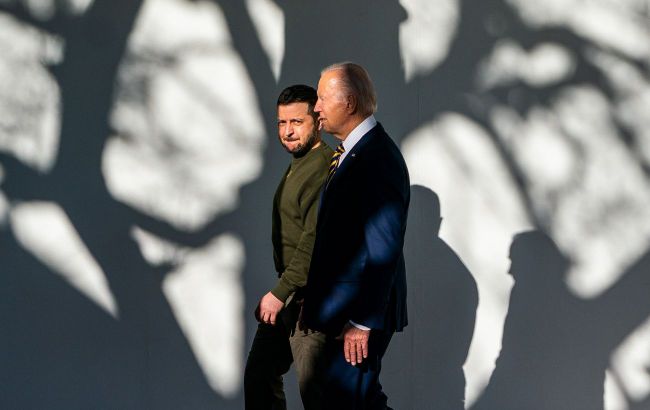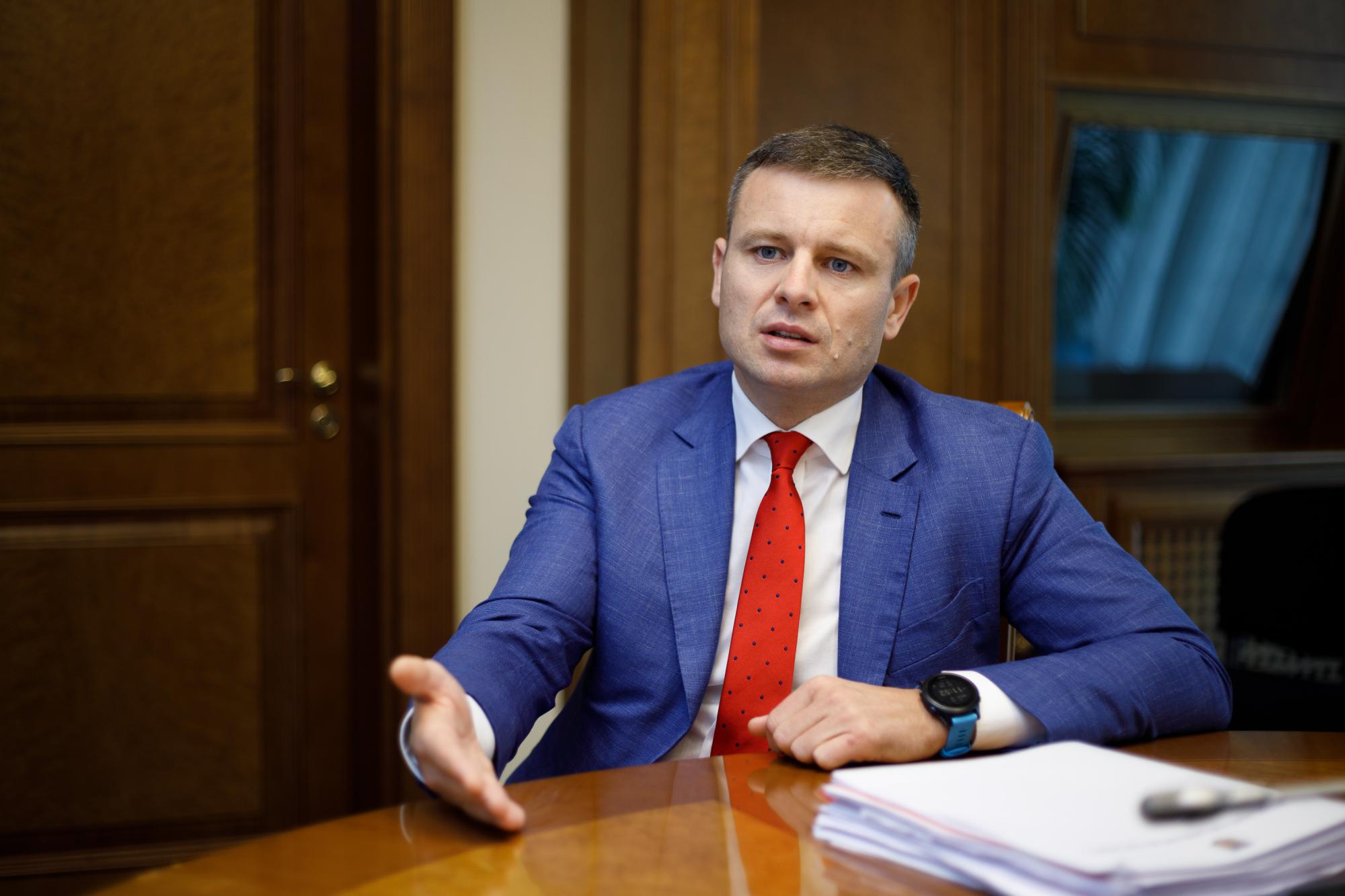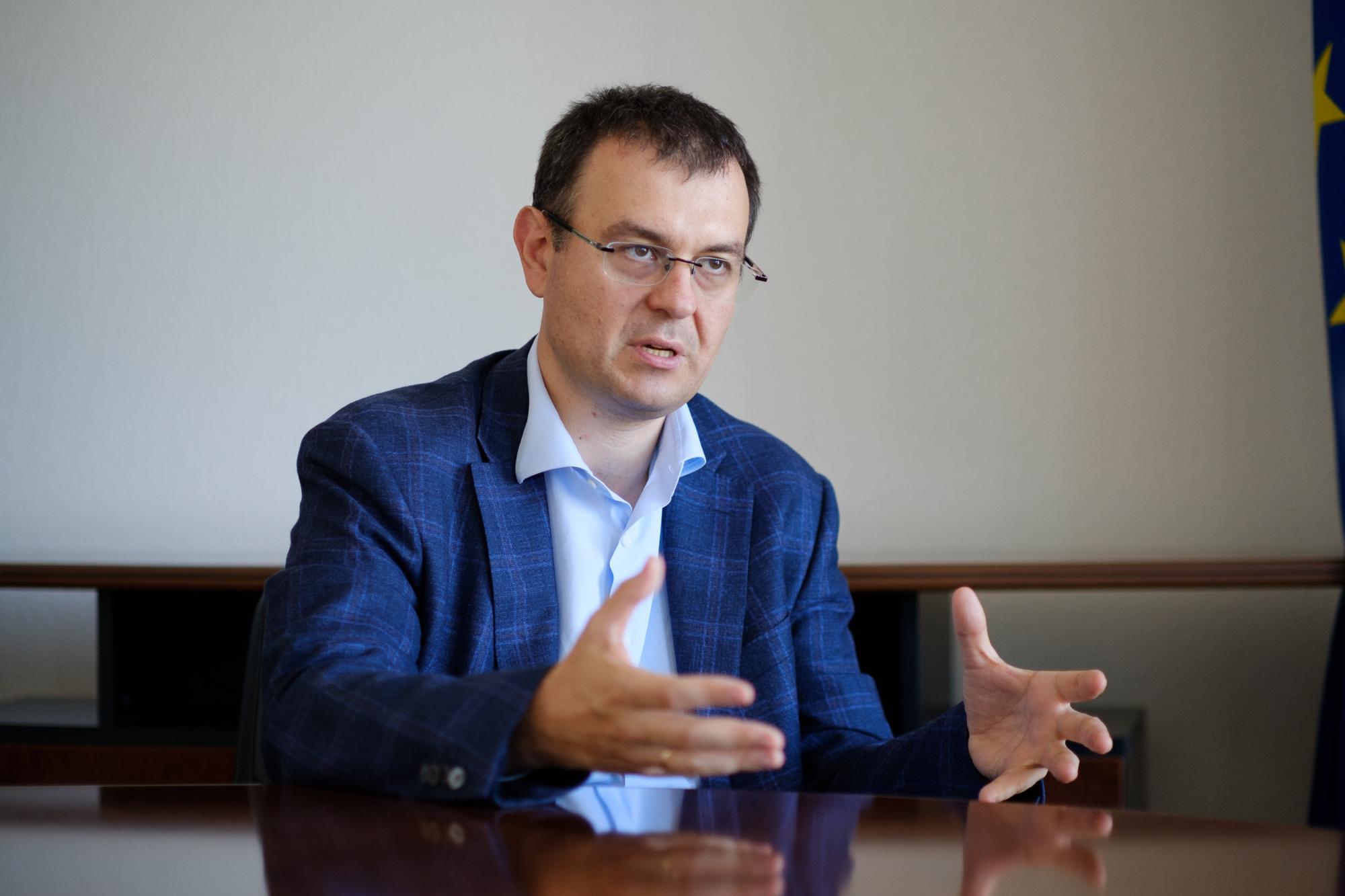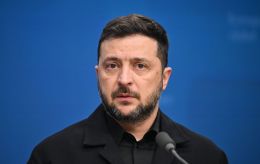Trust, but verify: Under what conditions the West ready to provide money to Ukraine?
 Volodymyr Zelenskyy and Joe Biden (Photo: Getty Images)
Volodymyr Zelenskyy and Joe Biden (Photo: Getty Images)
For a year and a half, Western donors have been financing Ukraine's budget, while the country spends all collected taxes on military needs. While raising funds from partners was not difficult last year, now tougher conditions have emerged. What questions have arisen in the West and what could hinder their execution - read below in the article by RBC-Ukraine.
Ukraine is preparing for the new financial year. The Cabinet of Ministers is required to submit the draft state budget for 2024 to the Verkhovna Rada (Ukrainian Parliament - Ed.) by September 15th. Currently, the details of the document are not known, but the Minister of Finance, Serhii Marchenko, has already stated that next year, as before, significant financial support from international partners will be needed. Donor funds may be needed even more than this year.
"In our communication with partners, we will emphasize that Ukraine's financial needs will not decrease. We insist that support should not be less than this year, which is over 42 billion dollars. If we can have this level of support, then we can say we have a budget," the Finance Minister stated.
The monthly Ukraine's need for external borrowing is 3-4 billion dollars. This amount covers all expenses not related to security and defense, primarily social expenditures such as pensions, aid, subsidies, and so on. The second part of the budget, which is around 1.6 trillion hryvnias, is used for defense needs. The treasury receives these funds in the form of taxes, customs duties, and domestic loans.
However, the Ministry of Finance does not rule out the possibility that this amount may increase. "We will plan the security and defense sector budget at the level of 2023: 1.6 trillion for now. But this is not a final figure," Marchenko reported.
Throughout the year, donor funds have been coming in on time and in sufficient quantities. However, there is uncertainty about whether this will continue. The issue lies with the United States, where the fiscal year ends in September. Essentially, Ukraine has no guarantees regarding disbursements from Washington for either the 4th quarter of this year or the entire next year. The internal political situation in America adds to the nervousness.
President Joe Biden addressed Congress on August 10th with a proposal to allocate an additional 24 billion dollars to Ukraine. The White House is confident that the decision will be positive. However, there have been significant disagreements in American politics on this matter. Some Republicans, understanding the swift start of presidential campaigns in the States, took the opportunity to criticize Biden for excessive spending on supporting Ukraine.
"There's no escaping this; we already feel the election campaign in the States. Statements from politicians about the need for more transparency from Ukraine and so on are being made. But this is all populism. We hope that the White House will be able to fend off these attacks," noted one of the influential Ukrainian politicians in a conversation with RBC-Ukraine.
SAP - an informal condition from the U.S.
For now, the United States is funding Ukraine according to the current year's budget - approximately $1.5 billion per month. In September, the final tranche for the fiscal year is expected. However, according to several sources of RBC-Ukraine, the United States imposed an informal condition for providing money - the preparation of a bill to strengthen the institutional independence and efficiency of the Specialized Anti-Corruption Prosecutor's Office (SAP).
The adoption of such a law by the end of 2023 is one of the conditions for receiving macro-financial assistance from the European Union and financing from the IMF. However, the United States wants to see a clearer algorithm for its implementation. "The draft law on SAP must be prepared by September 15 - this is the wish of the United States," a government representative said.
Another source familiar with the negotiations between the United States and Ukraine confirmed the likelihood of such an informal condition but explained that there are usually no specific conditions for funding from the United States. Moreover, Washington coordinates its actions with the IMF and makes decisions based on Ukraine's cooperation progress with the Fund.
"Formally, the SAP issue, based on the memorandum with the IMF, needs to be resolved by December. However, perhaps at the working level, Washington has some intermediate expectations confirmed by Kyiv," the source said.
Interest in the anti-corruption topic overseas is not accidental. In the West, while providing Ukraine with large packages of aid for both humanitarian and military needs, they want to be sure that these funds are used for their intended purposes.
"In private conversations, our partners jokingly say that Ukrainians haven't stolen a single dollar from American taxpayers but ask not to steal from their own. Seriously, in the West, there are questions about our state procurement and recovery projects. Hence the interest in SAP and the desire to see more effective work from the National Anti-Corruption Bureau," the source explained.
According to him, the main problem lies in the powers of the head of SAP. Both law enforcement anti-corruption officers and Ukrainian public figures regularly point this out. The issue is that this body was initially created as an independent unit of the Prosecutor General's Office to investigate corruption cases involving high-ranking officials. SAP still does not have a separate legal status and remains administratively and procedurally dependent on the Prosecutor General's Office. Without the consent of the Prosecutor General, personnel decisions cannot be made, cases against Members of Parliament cannot be initiated, and decisions on extradition cannot be taken.
An RBC-Ukraine government representative stated that a bill on the independence of SAP is planned to be prepared by mid-September, as Western partners desire. "There should be no problems with this. If necessary, the bill will be ready," he noted.
Whether the document will ensure the necessary independence of SAP and or will be supported by MPs is currently unknown. It's worth noting that the first bill on the independence of SAP was submitted to the Verkhovna Rada at the beginning of 2023, but it was criticized by the relevant committee and withdrawn from consideration.
There are no guarantees, but there is hope
The Ministry of Finance is cautious with budget financing forecasts, and for now, they are confident only in receiving funds from the EU. "For 2024, we only have an understanding that we will receive assistance from the EU - 50 billion euros over four years. There is the IMF, which helps us meet these commitments. I hope the United States will also contribute. I really hope!" - said the Minister of Finance in an interview with "Radio Liberty."

Minister of Finance of Ukraine Serhii Marchenko (Photo: Vitalii Nosach/RBC-Ukraine)
In 2023, the EU is financing Ukraine with loans under a macro-financial assistance program of 18 billion euros. So far, disbursements are on track because Ukraine is meeting the program's conditions. Another tranche of 1.5 billion euros was disbursed to Ukraine on August 22, adding up to a total of 12 billion euros in credit funds from the EU this year.
From 2024 to 2027, the EU will utilize a new instrument called the "Ukraine Facility." It includes not only loans but also grants. Technical assistance is also possible, including expert support for reforms, municipalities, civil society, and other forms of bilateral assistance.
Under the 4-year program with the International Monetary Fund, signed in March 2023 for $15.6 billion, Ukraine has already received two tranches of 3.6 billion dollars (2.7 billion and 900 million dollars, respectively). The third tranche of 900 million is planned after a program review in October.
The June program review for the second tranche went relatively smoothly and quickly. Ukraine managed to fulfill all 5 conditions and received the funds on schedule. However, the second review has a list of conditions twice as long, making it more challenging to fulfill.
The primary challenges could arise from conditions related to the resumption of business inspections, the return of e-declarations, and lifetime monitoring of the financial status of "politically exposed persons" (PEPs). Additionally, difficulties may arise in meeting conditions related to the energy sector.
In July, the Parliament passed a law abolishing the preferential 2% unified tax and resuming business inspections (No. 8401). However, according to unofficial information, the IMF does not consider this document as meeting its condition. "In short, structural milestone achievement is not recognized there because there was a last-minute change in the text of the law that was not agreed upon with the IMF," said MP Yaroslav Zheleznyak. Essentially, inspection resumption was postponed until the end of martial law. Several other MPs confirmed that the law does not meet the IMF's requirements.
The deadlines for passing the law on the resumption of e-declarations have also been extended, but it is planned to be passed in September. This was confirmed by the Chairman of the Committee on Finance, Danylo Hetmantsev. "Regarding declarations, yes, we are late, but before the program review, we will definitely make it (the decision - Ed.). Probably in the first half of September," he said.

Chairman of the Committee on Finance Danylo Hetmantsev (Photo: Vitalii Nosach/RBC-Ukraine)
The probability of renewing lifetime PEP checks at the moment is extremely low. This norm needs to be adopted by the end of September, but according to sources in the Parliament, most MPs do not support it. "The situation with this issue is the most complicated. There is no support among the MPs," said the source.
There are significant doubts about the implementation of the conditions of the management reform of the GTS (Gas Transmission System) Operator. The government was supposed to transfer the company's shares to the Ministry of Energy back in July, but the decision has not been made yet. This is the first condition, and according to the second, a new supervisory board for the company should be selected and appointed by the end of October.
Considering that the process of selecting and appointing a supervisory board takes about three months, it can be assumed that the requirement will not be fulfilled on time. This could lead to a situation where, from October, when, according to the law, the supervisory board of the GTS Operator ceases to operate, the function of managing the GTS will be transferred to the government. Such a situation could cause additional problems, as the corporate governance system would be disrupted once again.
***
The overall political and social situation in Ukraine also plays a crucial role in Western financing. Periodic corruption scandals in Ukraine force donors to closely monitor both the fulfillment of lending conditions and the use of funds, which is entirely justified and logical.
The conditions imposed by the West on Ukraine are often quite harsh and have sparked criticism within the country. Under different circumstances, Ukraine might have refused them (or agreed and then sought their cancellation, as has happened repeatedly). However, now that the country is entirely dependent on external financing, such a move would be risky. The imposed conditions must be met to ensure a regular inflow of funds to fulfill social commitments and support the economy. Therefore, attempts by certain politicians to justify their unwillingness to implement unpopular reforms or combat corruption, which hasn't disappeared in the past year and a half, seem doubly absurd. Moreover, these reforms and tough decisions primarily benefit Ukrainians, not Western countries.

